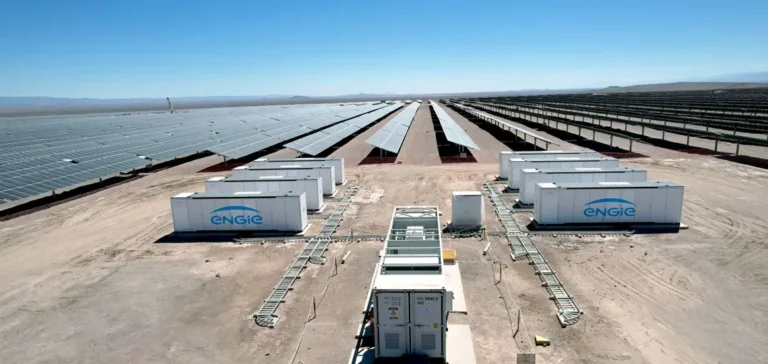Chile plans to deploy five gigawatts of battery storage capacity by 2030, together with the commissioning of the 3 GW Kimal-Lo Aguirre high-voltage direct current transmission line. This development marks a new stage in the country’s rapid decarbonisation strategy, as the accelerated growth of renewables brings challenges linked to curtailment and price volatility.
An electricity market under pressure from oversupply
Projections based on advanced modelling across fifty power zones indicate that from 2035, Chile could face an oversupply situation, the result of renewable capacity expanding faster than demand. The increasing integration of battery storage aims to limit generation curtailment and smooth surplus management, especially from 2032, when congestion around the Alto Jahuel hub is expected to ease noticeably.
The combination of storage and modern transmission lines should help stabilise the electricity market and support the profitability of renewable energy producers. Storage arbitrage opportunities are estimated to average $79/MWh until 2030, before gradually declining as installed capacity grows.
New profitability for storage and natural gas transformation
Chile would thus become the first South American country to achieve competitive battery storage pricing within the next decade. This change is expected to reduce economic risks for renewable energy players, while offering attractive market prospects for operators specialised in storage and system flexibility.
At the same time, the role of natural gas is evolving. Formerly a baseload technology, it will become a peak demand solution. The gradual coal phase-out is making it necessary to convert some existing units to natural gas or biomass. This shift is set to intensify after 2030, as installed solar capacity increases, reinforcing natural gas as the main winter backup technology.
Decisions made today in Chile’s energy sector are closely watched across the continent, as the country establishes itself as a full-scale laboratory for massive integration of renewables and storage at the national grid level.





















